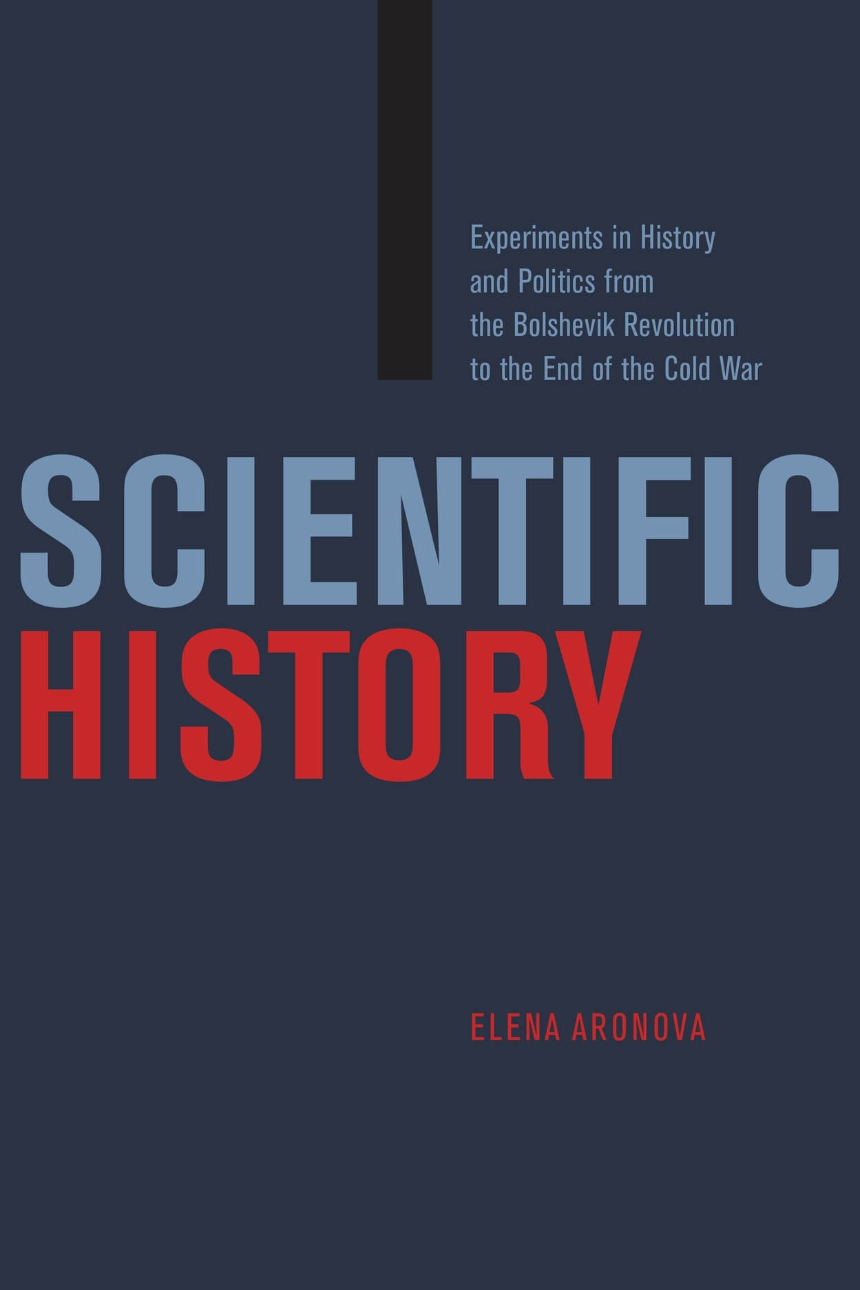Scientific History
Experiments in History and Politics from the Bolshevik Revolution to the End of the Cold War
9780226761381
9780226761411
Scientific History
Experiments in History and Politics from the Bolshevik Revolution to the End of the Cold War
Increasingly, scholars in the humanities are calling for a reengagement with the natural sciences. Taking their cues from recent breakthroughs in genetics and the neurosciences, advocates of “big history” are reassessing long-held assumptions about the very definition of history, its methods, and its evidentiary base. In Scientific History, Elena Aronova maps out historians’ continuous engagement with the methods, tools, values, and scale of the natural sciences by examining several waves of their experimentation that surged highest at perceived times of trouble, from the crisis-ridden decades of the early twentieth century to the ruptures of the Cold War.
The book explores the intertwined trajectories of six intellectuals and the larger programs they set in motion: Henri Berr (1863–1954), Nikolai Bukharin (1888–1938), Lucien Febvre (1878–1956), Nikolai Vavilov (1887–1943), Julian Huxley (1887–1975), and John Desmond Bernal (1901–1971). Though they held different political views, spoke different languages, and pursued different goals, these thinkers are representative of a larger motley crew who joined the techniques, approaches, and values of science with the writing of history, and who created powerful institutions and networks to support their projects.
In tracing these submerged stories, Aronova reveals encounters that profoundly shaped our knowledge of the past, reminding us that it is often the forgotten parts of history that are the most revealing.
The book explores the intertwined trajectories of six intellectuals and the larger programs they set in motion: Henri Berr (1863–1954), Nikolai Bukharin (1888–1938), Lucien Febvre (1878–1956), Nikolai Vavilov (1887–1943), Julian Huxley (1887–1975), and John Desmond Bernal (1901–1971). Though they held different political views, spoke different languages, and pursued different goals, these thinkers are representative of a larger motley crew who joined the techniques, approaches, and values of science with the writing of history, and who created powerful institutions and networks to support their projects.
In tracing these submerged stories, Aronova reveals encounters that profoundly shaped our knowledge of the past, reminding us that it is often the forgotten parts of history that are the most revealing.
Reviews
Table of Contents
Preface
Introduction
Russia as Method
1 The Quest for Scientific History
Two Unity of Science Movements
Positivism, History, and Henri Berr’s Historical Synthesis
Historical Synthesis and the History of Science
The Internationalist Politics of Synthesis
Positivism, History, and Henri Berr’s Historical Synthesis
Historical Synthesis and the History of Science
The Internationalist Politics of Synthesis
2 Scientific History and the Russian Locale
Russia and the West
Russian Historiography on the World Stage
Marxism and History
The Great Break
Bukharin and the History of Science
London 1931
Russian Historiography on the World Stage
Marxism and History
The Great Break
Bukharin and the History of Science
London 1931
3 Nikolai Vavilov, Genogeography, and History’s Past Future
The Geographies of History and the Genetic Archive
The Mendeleev of Biology
Vavilov’s Genogeography and the Bolsheviks’ Geopolitics
A “New Kind of History”
The Politics of History
The Mendeleev of Biology
Vavilov’s Genogeography and the Bolsheviks’ Geopolitics
A “New Kind of History”
The Politics of History
4 Julian Huxley’s Cold Wars
Julian Huxley’s Two Careers
A Journey to a Utopian Future
The Crisis in Soviet Genetics and Julian Huxley’s Cold Wars
Huxley’s Evolutionary History
A Journey to a Utopian Future
The Crisis in Soviet Genetics and Julian Huxley’s Cold Wars
Huxley’s Evolutionary History
5 The UNESCO “History of Mankind: Cultural and Scientific Development” Project
History by Committee
Febvre’s Cahiers: Historical Journals and the Making of Historical Knowledge
Cold War Internationalism and the Writing of History
Febvre’s Cahiers: Historical Journals and the Making of Historical Knowledge
Cold War Internationalism and the Writing of History
6 Information Socialism, Historical Informatics, and the Markets
Bernal’s Information Socialism: From London 1931 to Cold War America, via Russia
Envisioning History as Data Science
Historians and Computers
The Socialist Markets for a Capitalist Data Product
Envisioning History as Data Science
Historians and Computers
The Socialist Markets for a Capitalist Data Product
Epilogue
Past Futures of the History of Science
List of Archive Abbreviations
Notes
Index
